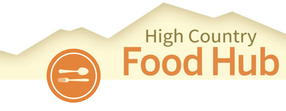|
“[LocalFAM] fits our model for how we harvest, how we pack things. It fits our model for why we care about people getting food that wouldn’t have access otherwise.” - Kara Dodson, Full Moon Farm
“[LocalFAM] has enhanced my experience [of farming]… The intentions of the LocalFAM food box is actually miraculous to me.” - Matt Cooper, Lively Up Farm “The fact that most of the people who live around my farm can’t eat or access… food that’s grown in it is something I think about a lot. It’s something that irritates me.” - Dave Walker, Daffodil Spring Farm |
|
Second Harvest Recipients:
“What we got from [LocalFAM] is the best of the best, so our families got an opportunity to get the same thing they would if you were buying it out of the grocery store, maybe even a little fresher.” - John Triplett, Wilkes Ministry of Hope |
|
CONTACT US
828.412.0834 [email protected] MAILING: PO Box 67, Boone, NC 28607 LOCATION: 252 Poplar Grove Rd, Boone, NC SHOP FOR LOCAL FOOD ONLINE |
